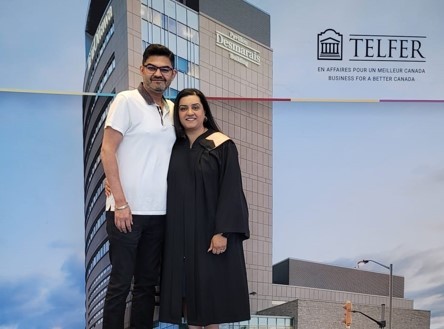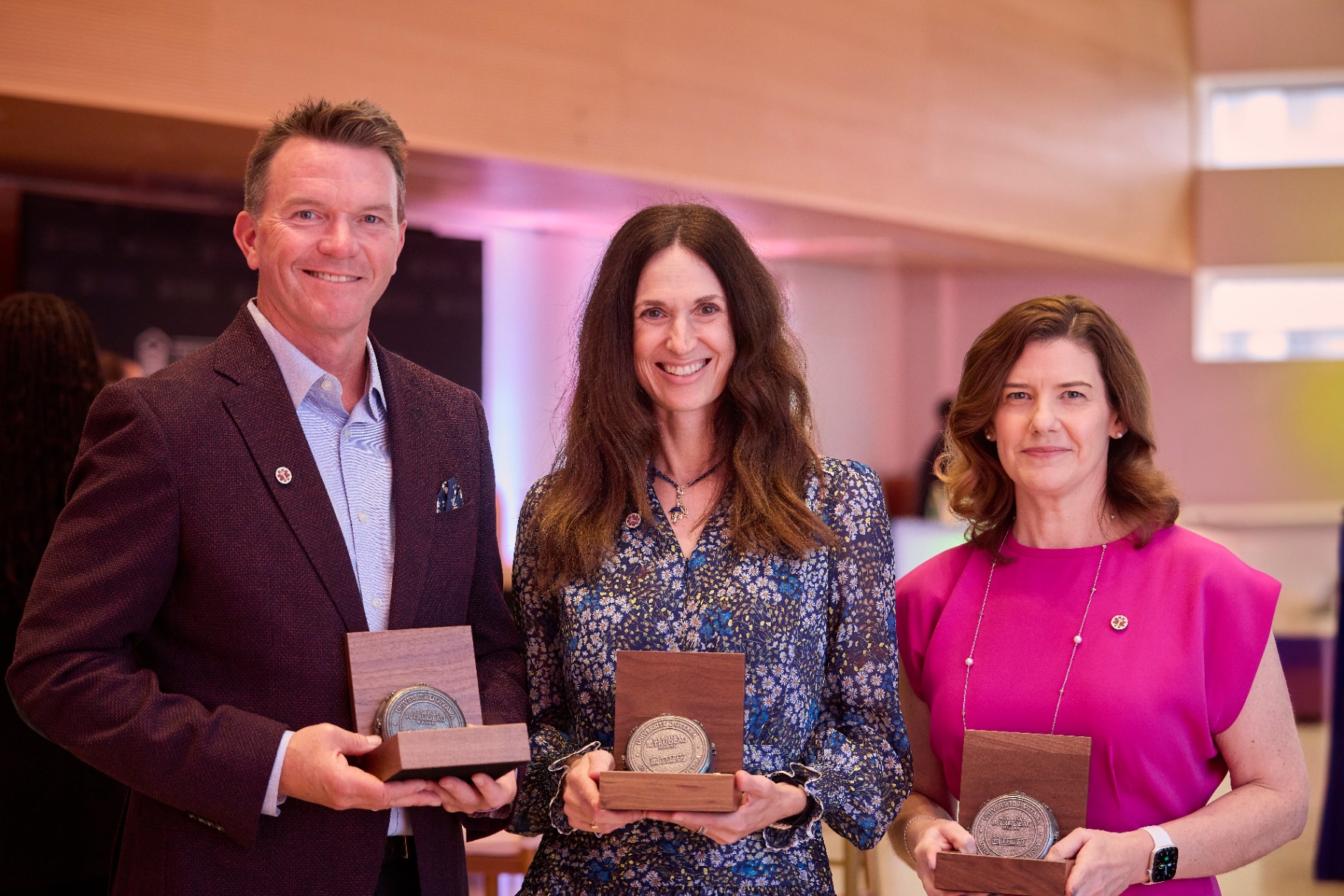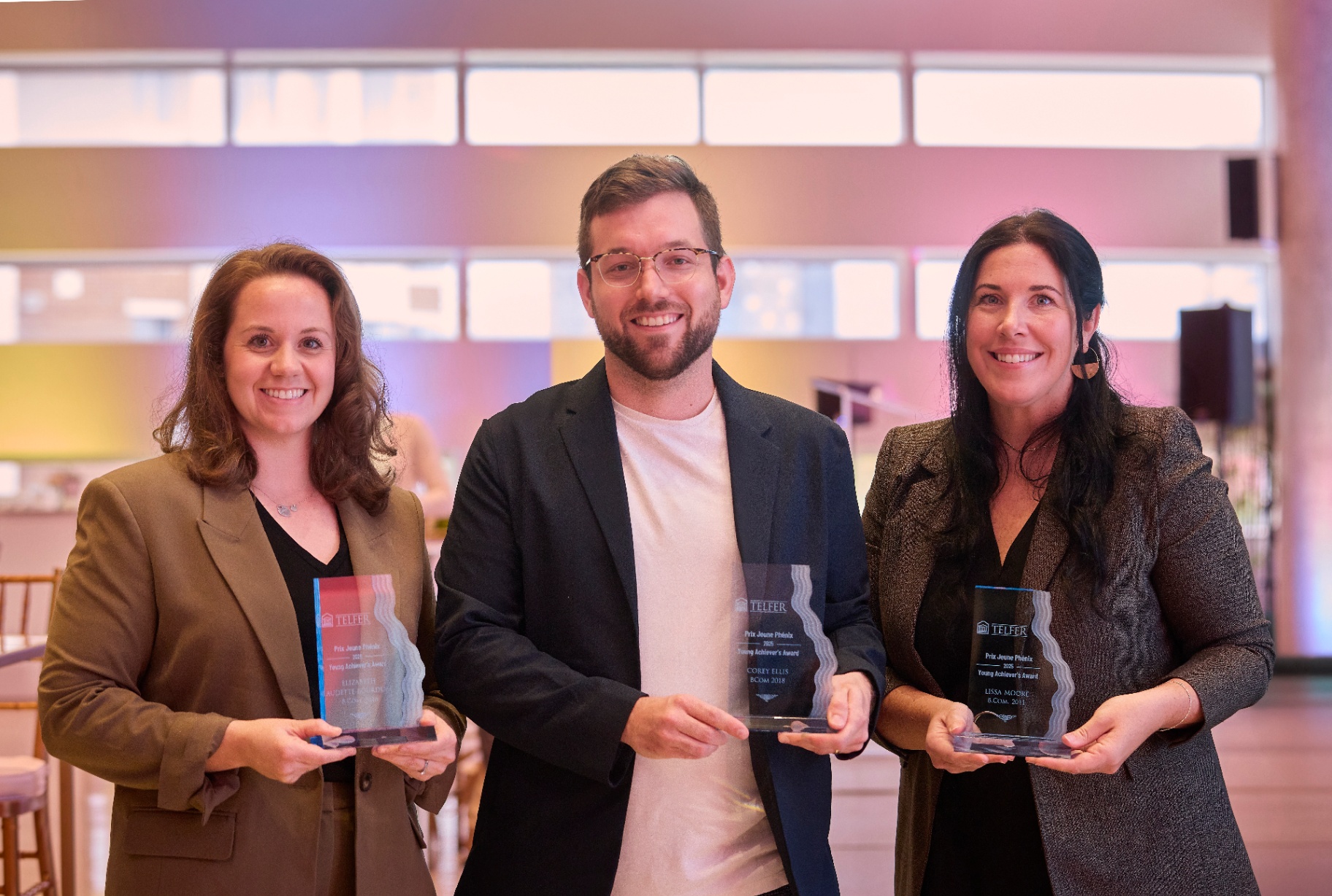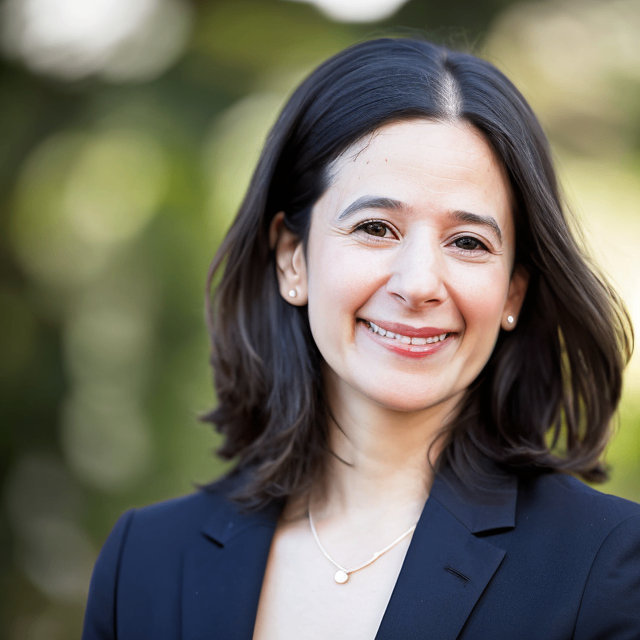Ildephonse Mmangyo (BCom ‘22) came to Ottawa as an international student from the Democratic Republic of Congo. During his time at the Telfer School of Management, he specialized in finance while co-founding an Ottawa-based non-profit organization, the Twaweza Initiative. We caught up with Ildephonse to learn more about his inspiring journey and what motivated him to pursue a path rooted in giving back.
Can you share your journey from being a young refugee with your family to launching a career in finance in Canada?
My family fled the Democratic Republic of Congo to Tanzania when I was very young due to civil unrest. We settled in Tanzania for around 10 years in refugee camps, where I was able to complete my primary education. In 2011, as I was nearing the end of secondary school, our family decided to migrate to Malawi due to the lack of security in Tanzania. We stayed in Malawi until I left to pursue my studies in Canada. But life in Malawi was not easier for me. As a refugee, I didn’t have the opportunity to pursue higher education due to the legal constraints in the country. I never thought about the possibility of continuing my education as it seemed like a wild dream. People expect you to seek employment once you are done with secondary school, and even that was a great challenge because of my refugee status.
Everything changed when I was introduced to a non-profit organization that supports refugees to pursue higher education in Canada. One day, members from this organization came into the refugee camps in Malawi and identified several candidates who met their criteria. While the process was lengthy, I was lucky enough to be selected as part of the 2016/2017 cohort and, fortunately, matched with the University of Ottawa. I arrived in Canada in August 2017, and I started my academic journey at the Telfer School of Management that September. I graduated in 2022 with a Bachelor of Commerce in Finance. The prospect of attending a big institution like the University of Ottawa is something I could never have imagined, especially due to my circumstances. I will always be grateful to have received such a valuable opportunity.
Did the opportunities at Telfer support you in your personal and professional pursuits?
Very, very much! If I were to go back, I would always pick Telfer. I have a special attachment to Telfer because the school provided me with the chance for personal development. It is a place that allowed me to grow through learning, mentorship, and countless interactions with different individuals, which instilled a sense of professional ethics in me. I also learned the importance of giving back through these experiences.
Whatever you acquire—be it knowledge, growth, or experience—you shouldn’t keep it to yourself. Telfer instills that capacity for you to be able to share your gained knowledge and experience with others.
To this day, I remain in touch with my friends from Telfer. The friendships that you nurture do not end once you graduate, they stay with you throughout your life. I’m very fortunate to still be connected to such a supportive alumni community.
As an immigrant and an international student, what were some challenges you faced along the way and how did you navigate through them?
Coming from a background as a refugee, the move to Canada was a huge adjustment. It was very challenging at first, especially with the culture shock and the loneliness I endured. The teaching method here in Canada is also a little different, which made me struggle a bit at the beginning of my studies. Regardless, through the support and community I found at the University of Ottawa, I was able to navigate through that difficult moment and through those challenges. The resources I was exposed to on campus—from academic writing support to mental wellbeing support—really helped me overcome these obstacles.
The community at the University of Ottawa is very welcoming. I can still vividly recall the moment I met my first friend while living in residence. The fact that this student cared so much about me despite not knowing me that well brought light back to my mind and gave me hope. From there, I was able to make more friends and the rest is history.
You and a few of your peers first talked about launching a non-profit while you were students. What inspired you to turn that vision into the Twaweza Initiative?
Yes, the idea of launching Twaweza first popped up back in 2019, but the initiative didn’t officially take shape until social distancing measures came into effect in mid-2020, at the beginning of the COVID-19 pandemic. I felt perplexed and isolated due to strict social gathering restrictions. My situation begged the question that would later become the foundation of Twaweza: how are others, especially those who share the same background as me, handling this situation?
A few friends and I created a small group chat to stay connected during the pandemic. Through our conversations, we realized just how much the isolation had negatively affected our mental health. My friends and I were very lost initially as we didn’t know how to navigate through such abrupt changes. Then, one person said, “I think we can do this!” His words became the inspiration behind the name Twaweza, a Swahili word meaning “together, we can.” It became a symbol of our shared determination to get through difficult times as one.
.jpg)
After a while, we decided to extend our hands and reach out to other members in the community, especially immigrants and refugees, who we knew might also be struggling to cope with the effects of social isolation like us. This served as an opportunity for us to hear about their stories, especially as immigrants. The initiative became very big, and everyone was willing to share their stories!
As Twaweza started to gain more support, our team decided to no longer limit ourselves to providing services centered on the pandemic, but also to offer other programs such as financial education and employment readiness for refugees and newcomers. These programs aim to equip newcomers with the practical knowledge that they need to successfully start a new life in Canada.
How do you balance your time between your career and charitable work?
The secret recipe for me to efficiently balance my time between professional and philanthropic pursuits is passion. When you are passionate about something, you never get tired. Despite all the responsibilities that I juggle between work and family life, I still wake up early in the morning with a burning desire to contribute to my community.
Although I cannot deny that it is challenging at times to balance my professional and personal responsibilities alongside the Twaweza Initiative, my passion has helped me to push through that. It has made it possible for me to always find a way, despite long hours at work, to squeeze in some meetings or go through documents for the Twaweza Initiative whenever I have time.
In what ways has your experience overcoming adversity made you who you are today?
Overcoming adversity has shaped my identity in many ways. First, if I hadn't faced these challenges, maybe I wouldn’t have the passion to do what I am doing today. I always reflect on what I have gone through, and that is the driving force that motivates me to continue with my social contributions. During my hardest times, I received help and guidance from many individuals, and now that I am more settled in life, I want to be a person who makes a positive impact on others.
Second, it helped me to understand the importance of hope. Coming from a background where the prospect of continuing to higher education was a luxury, I didn’t have a lot of hope for the future. But here I am, a Bachelor of Commerce graduate from the University of Ottawa; something I never thought possible. My experiences have taught me that there is always a light at the end of the tunnel. No matter the circumstances, something meaningful can emerge from even the most difficult situations.
What advice would you give to prospective students who share a similar background to your own—or what would you say to your younger self?
Know that help is always available. What truly matters is your willingness to be open and ask for help. It’s always good to find someone who you can share your stories with, or a community you can be a part of. Don’t hesitate to make new friends from all walks of life.
I arrived in Canada with high hopes and big dreams, but I was uncertain how to pursue them. When I shared my aspirations with my professors and academic advisors, their expertise helped guide me in the right direction and showed me how to take meaningful steps to achieve those dreams.
Had I kept my aspirations to myself and been reluctant to share them with mentors and peers, I wouldn’t be where I am today. That’s why it’s so important to be open and actively engage with your community—because contributing, in any shape or form, helps create positive change for you and for others.

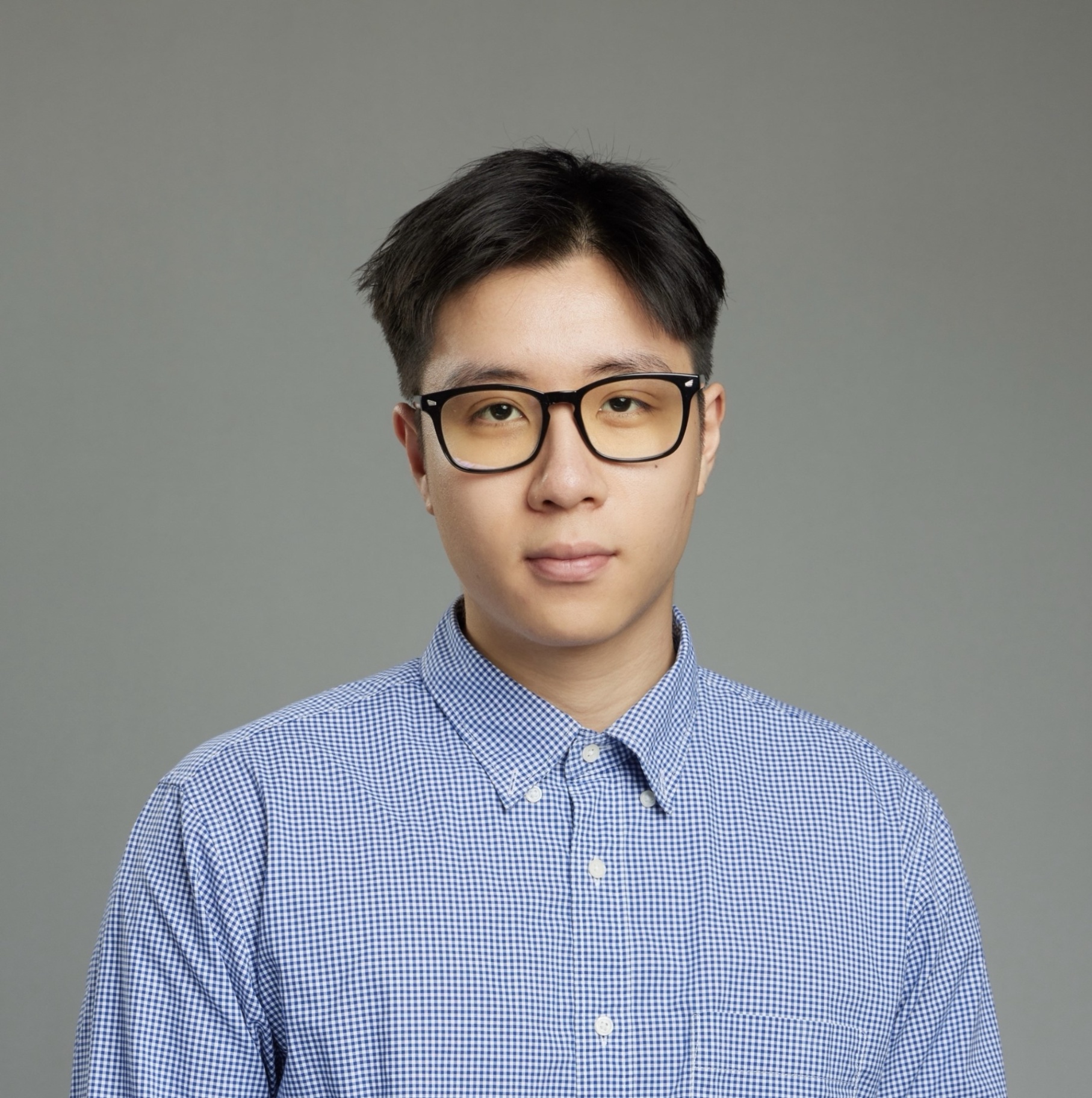
This article was written by Duc Manh Nguyen.
Duc Manh Nguyen is a fourth-year communications student at the University of Ottawa. As part of his co-op program, he serves as special projects and communications assistant with the Engagement and Development team at the Telfer School of Management.


